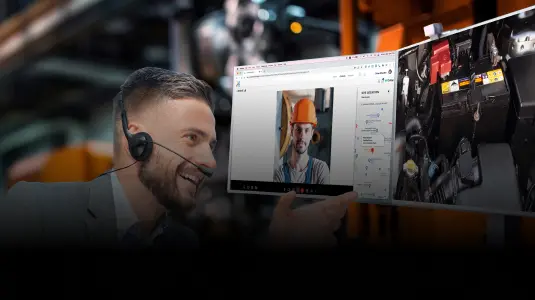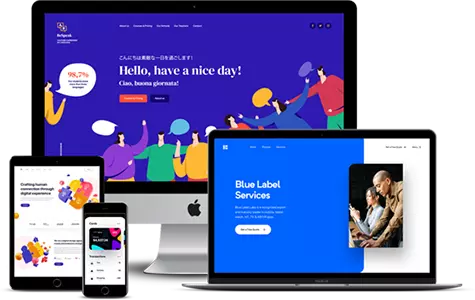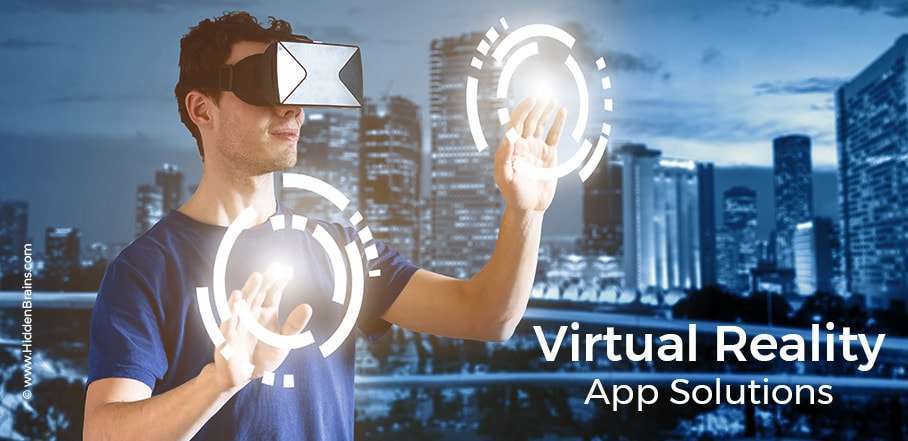Table of Contents
The potential of Virtual Reality to disrupt a diverse section of industries right from healthcare to entertainment is widely discussed and often supported by research reports. Undoubtedly, the practicality of virtual reality app development that replicates the physical world, creates sensory experiences and simulates real-life scenarios and experiences will profoundly affect the way we work. In order to leverage the benefits of this emerging technology, it is important to collaborate with Virtual Reality App Development Company.
However, one industry which has witnessed maximum disruption is the entertainment industry. Virtual reality (VR) has been predicted to change the future of entertainment technology solutions.
Although we are on the cusp of a human experience revolution, the world is still a few years away from the widespread adoption of this technology. VR technologies are at a nascent stage and face challenges such as bulky headsets and often unintuitive interactions. In order to overcome these barriers, it is important to collaborate with a trusted Virtual reality app development company.
The VR industry is growing at a fast pace with the market size of virtual reality hardware and software projected to increase from 2.2 billion U.S. dollars in 2017 to more than 19 billion U.S. dollars by 2020.
Another forecast projects revenues from the global virtual reality market to reach 21.5 billion U.S. dollars in 2020.
Virtual Reality (VR) places you in a digital world by creating immersive experiences using 360-degree video or computer-rendered environments. The key to virtual reality is transforming a passive observer to an active participant in the action. VR is definitely slated to transform entertainment, especially given the growing number of companies and products.
There are several HMDs in the market, ranging from affordable to expensive. Also, these devices are accessible than others.
Virtual Reality Entertainment Technology Solutions
Location-Based VR
With millions of dollars in investment raised, Location Based Entertainment is growing at exponentially becoming one of the most accessible, social and financially-viable forms of VR development. The term LBE is applied to a whole group of entertainments, such as theme parks, arcades, bowling alleys, parks, casinos, movie theatres, and many others.
Despite the fact that it would be logical, sports are usually not referred to as location-based entertainment. LBE VR lets to host VR experiences, allowing users to physically interact with the environment in a way they can’t in their own home.
The key to location-based VR is the experience itself is creating engaging virtual reality content that should not just be ported from conventional commercial platforms.
Virtual Reality Movie Theaters
Movie theaters are typically ready and willing to try new technologies to keep their seats full. The silver screen and theater provide a totally immersive experience, but theater owners are always looking for a new edge over home entertainment.
In fact, movie theaters are at the forefront of the latest technological upgrade to the cinematic experience: Virtual reality. Wearing head-mounted displays, movie enthusiasts view the entire show in the virtual world, in a plain room, devoid of the screen and equipped with comfortable, spinning office-style chairs.
Virtual Reality Theme Park Rides
Virtual reality theme park rides are an obvious application of the technology and are actually not a new one. World famous amusement parks like Disneyland and Universal Studios have been strategically using flight simulator technology for years to create motion simulator rooms. Although, these attractions go much beyond the using head-mounted displays combining the use of high-definition movie screens, booming sounds, and motorized seats to actually provide the feel of space adventures. Today, modern virtual reality is finding an even stronger foothold in the theme park industry.
Virtual Reality Devices
Oculus Rift S
Dubbed as the most advanced PC-powered headset, Oculus Rift S plans on being the gold standard of Virtual Reality HMDs. Specifically designed for video gaming, it delivers the very best in immersive virtual experiences.
Purchased by Facebook in 2014, Oculus VR is certainly well-funded as they seek to establish itself as the go-to Virtual Reality hardware and software company.
HTC Vive
HTC’s VR system brought to us in partnership with Valve, and powered by Steam VR – is the leading VR headset and controller combo on the market today. Designed exclusively for VR, it offers best-in-class technology as a powerful, sleek, and Intuitive controls and gestures. HTC delivers fully immersive gaming experiences with realistic HD haptic feedback.
Samsung Gear VR
Samsung’s VR headset is still powered by Oculus and requires a smartphone device to power it, and naturally works best with Samsung brand phones such as the Galaxy S6, S6 Edge, S7, and S7 Edge.
Google Cardboard
Offering hundreds of immersive experiences to choose from, Google Cardboard lets you experience virtual reality in a simple and affordable way. It is the perfect option for those who wish to only dip into the world of Virtual Reality.
It is easy to use. Simply order one, and once it’s in your possession, fold it, slot your phone in, and explore a whole host of VR apps.
Treadmills and Haptic Gloves
Beyond the VR headsets, there are several devices that enhance or further improve the levels of immersion as the user enters the virtual environment. If there’s plenty of space (and expendable income) available, then Treadmill is ideal for allowing its user to take the VR experience to another level. They can walk in a safe environment, run, or even jump in 360-degrees, exploring simulated worlds and exercising at the same time.
Business Opportunities for VR in Entertainment
Virtual reality in entertainment may facilitate businesses in two major ways:
- Develop/sell/rent VR products known for gaming, amusement, parties, corporate events, as well as personal use.
- Advertising and monetization within VR applications.
Those who’ve already invested or explored this niche, realize the cost of related virtual reality equipment or hardware but know that it’s all about content. More content, more games, more simulations, more tours – the better. People want new experiences and new sensations, they want to be entertained. VR games attract new customers looking for excitement.










































